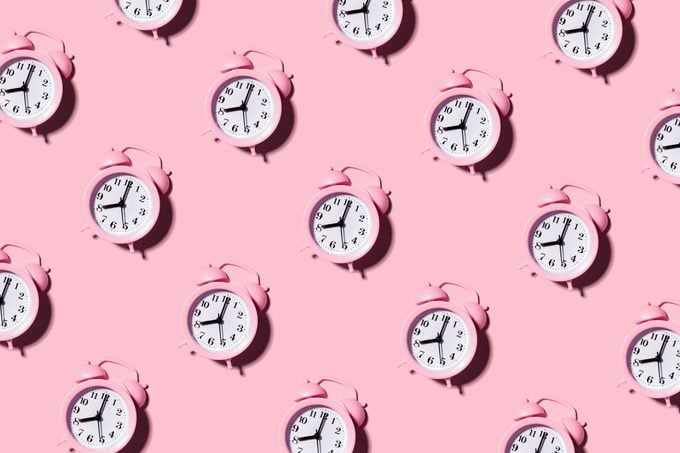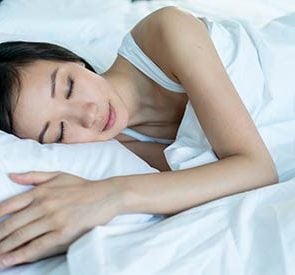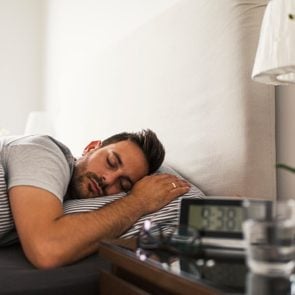If You Always Wake Up Right Before Your Alarm Goes Off, There’s a Scientific Explanation Why
Updated: Mar. 30, 2022
You have an internal clock that keeps track of time just like your alarm clock does. Here's why it can spoil a sound night's sleep.

Nearly everyone has experienced that disorienting, panicky feeling of waking yourself up before your alarm clock. You have a small heart attack as you jump out of bed—positive that you overslept again—only to realize your alarm won’t go off for another five minutes. Groan. That’s not enough time to fall back asleep, but too much time to consider getting out of bed, either. What gives?
Why you’re waking up before your alarm
You can thank your body’s finely tuned internal clock for the early wake-up call, according to a study published in Science. It’s all courtesy of the little-known KDM5A gene, dubbed “the alarm clock gene.” How does this tiny gene have such a powerful effect? First, you need to know a little bit about what makes your biological clock tick.
A protein called PERIOD (PER) rises in the morning and goes up through midday, signaling to your body that it’s time to be awake. As the day wanes, levels of PER drop. Falling PER protein levels at night causes your biological systems to slow: your blood pressure drops, your heart rate slows and your mental processes wind down. All of these signals tell your brain it’s time to hit the sack. The alarm clock gene encodes a protein, JARID1a, that activates the PER biochemical circuit that maintains our sleep-wake cycles.
How to wake yourself up
If you maintain a consistent sleep schedule, your circadian rhythm behaves accordingly, following a predictable daily pattern based on the rise and fall of your PER levels. Your body gets so good at predicting when you wake up that your PER levels will start to rise which releases hormones that tell your body to wake up, slightly before your alarm clock jars you awake.
This is important not just for people who wake up a few minutes early but those suffering from serious issues ranging from insomnia to Alzheimer’s disease. “So much of what it means to be healthy and youthful comes down to a good night’s sleep,” explains Satchidananda Panda, PhD, co-author of the study and a professor at the Salk Institute’s Regulatory Biology Laboratory. “Now that we have identified JARID1a in activating our daytime cycle, we have a whole new avenue to explore why some people’s circadian rhythms are off and to perhaps find new ways to help them.” (For now, check out these tips for getting your circadian rhythm disorder back in line.)
Alarm clocks are, let’s face it, a pretty brutal way to wake up so it’s worth it to use your body’s natural waking process instead. The best way to take advantage of this alarm clock gene is to go to bed and wake up at the same time every day. Easier said than done, sometimes, right? If you must use an alarm clock, try a gentler natural light alarm clock for a smoother morning. That way, you’ll wake up slowly, rather than jolting awake all at once like you would with a traditional alarm.
To start making the most of every minute of your snooze time, try these doctor-approved secrets to better sleep.



